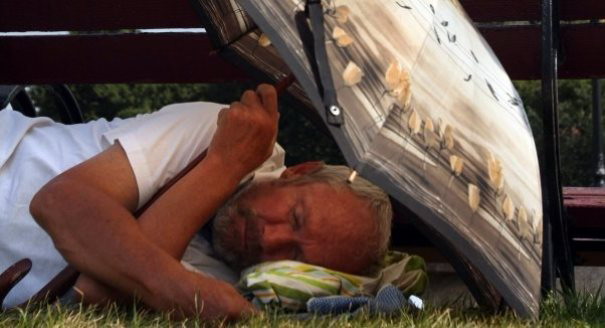It was on June 12, 1990, that the Congress of People’s Deputies of the Russian Soviet Federative Socialist Republic, elected a couple of months earlier on one of the final waves of Gorbachev’s perestroika, declared the state sovereignty of Russia. Now, almost a quarter of a century later, there are many of those who would like to question the very meaningfulness of celebrating this day as the “liberation” of the millennium-old Russia, in its Soviet reincarnation, from the other fourteen republics which together with her constituted the Soviet Union. As if it had really been up to the Russian parliamentarians, for the first time ever elected in relatively free elections, to make that decision on whether the Soviet Union would continue as a whole or dissolve.
The election of the Russian president on the very same day a year later, on June 12, 1991, perhaps indeed did mark the beginning of the Soviet Union’s end. However, even in this case only those who have lost the feeling of reality and still think that in a modern world the bigger a country is the better can speak with sadness about “the greatest geopolitical catastrophe.” This is a landlord syndrome typical for authoritarian leaders. Ordinary citizens think differently. The world doesn’t know of any gigantic country where it is good to live, except, perhaps, for the United States, which, unlike Russia, is much more homogenous as a result of self-sustaining states-colonies “coming together.” The fact that parts of the former Soviet Union have started to live on their own is rather a good thing than a bad one. There were, of course, numerous costs associated with the Soviet Union’s disintegration, yet they resulted not so much from the break-up of the formerly unified country into pieces, as from the complicated relations between these territories.
Not everyone likes to celebrate this date as a holiday. Yet what other date can be offered to mark the creation of a new Russia?
A lot of time has passed since 1990. And Russia’s National Day has found its place in the gallery of Russian holidays, although is it not of an outstanding importance. Many Russians have long forgotten the immediate reason for the specific date of celebration. Regular polls of the Levada Center show that a few percent of the respondents see a connection between the holiday and the election of Russia’s first President. A little more people connect it with the Declaration of Russia’s Sovereignty. One should note, however, that the share of those who do not consider June 12 a holiday is also just a few per cent.
Citizens are often wiser than politicians, especially old-fashioned ones, who look into the past rather than the future. They want to celebrate the day of their country on June 12 without stuffing their heads with the question why it should be celebrated on exactly that day. It would be good if politicians, too, would keep away from trying to add any new symbolism to that date.
There are a dozen of local celebrations also taking place on that day, including City days in regional centers—from Novgorod the Great in the west to Krasnoyarsk in the east.
Nikolay Petrov is a professor at the Higher School of Economics.
